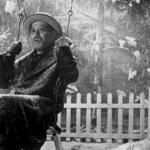Review of Skyfall, Directed by Sam Mendes
By ALEXIS NEAL
M has a problem. Someone has stolen MI6’s list of all NATO agents embedded in terrorist cells around the world. (Obviously this someone was a big fan of Mission: Impossible.) And it would appear the same someone has a personal vendetta against her—someone with a gift for computer wizardry. Someone who is perpetually two steps ahead of MI6’s best agents.
Obviously, this is a situation that calls for Bond. But there’s a minor snag: he’s dead. Shot off a bridge in an attempt to stop the list from being taken in the first place. Fortunately, like Westley in The Princess Bride, Bond is only mostly dead, and it’s not long before he’s back in London and ready to pit his wits against this new villain. Shenanigans ensue.
Bond movies often rely on an assortment of relatively unknown (or at least lesser known) actors and actresses. The villain is occasionally played by a recognizable talent, but usually the only real star is Bond himself. Which makes sense. But the end result is that Bond movies are not usually lauded for the caliber of the actors. But this time around, we get not only Bond himself and the inimitable Judi Dench as M—we are treated to performances by Ralph Fiennes (as the bureaucrat ‘overseeing’ MI6), Albert Finney (as a crusty old gamekeeper), and Javier Bardem (as Silva, the flamboyantly insane and maniacally clever villain of the piece). A cast like this necessarily elevates the tone of the whole film.
There are a number of recurring themes throughout the film, most notably the tension between young and old, past and future. Bond and M are seen as relics of a bygone age (and Bond himself is feeling his years in a way we haven’t really seen before). The British government has begun to question not only M’s leadership, but even the necessity of MI6 itself. Even within MI6 this tension is present—the elderly Q has been replaced by a younger model (Ben Whishaw, seen recently in Cloud Atlas) who prefers computers to silly gadgets, and sees agents as necessary only when a trigger must be pulled. But Silva is likewise a wiz with computers, and Bond and M eventually realize that in order to defeat him, they need to take the battle to their own outdated turf.
The resulting film has, of necessity, a delightful throwback feel. We get precious little in the way of new gadgets (I only counted two, one of which is clearly mocked as anything but innovative), but we are reunited with an old friend of the vehicular variety, which more than makes up for Q’s unimpressive offerings. Plus we get to see Bond and company improvise their own arsenal of sorts, with impressive results. Michael Westen would be proud (as would MacGyver). Also, for those concerned about such things, I can confirm that Bond is still a martini man (shaken, not stirred), that he has not lost his flair for self-introduction, that he still knows how to use a Walther PPK, and that there’s still nothing like an Aston Martin DB5.
And, of course, there are the usual Bond conquests.* But the film devotes precious little screentime to Bond and his latest conquest, choosing instead to focus on the complex relationship between him and M. This relationship—and the contrasting relationship between M and Silva—is far more compelling any other Bond relationship (including Vesper Lynd).
M has a hard job. She has directives she must complete, and sometimes that means making difficult decisions that jeopardize—or even sacrifice—her agents in order to protect the greater good. One such difficult decision results in Bond’s near death experience in the opening sequence. Another decision had catastrophic results for Silva who—surprise, surprise—also worked with M years ago. Both men came to see M as a mother figure of sorts, and both men have endured physical pain and suffering as a direct result of M’s choices. Bond reacts with acceptance, and his relationship with M, though momentarily strained, is quickly restored. She is genuinely glad to see him alive, and he is bound and determined to protect her from danger. The danger in this case being Silva, who believes M betrayed him and is set on revenge.
We have all experienced disappointment at the hands of authority, whether it’s a parent who fell short of expectations, a politician who failed to keep campaign promises, or, even more fundamentally, a God who denied us our dearest wish, or who allowed extreme suffering to torment us. And we can respond to this disappointment, this perceived betrayal, in a number of ways—hurt, anger, vengeance, resignation, or despair, just to name a few.
Part of thinking well about betrayal is reflecting on what our supposed betrayer owed us—what was promised. M never promised to keep her agents safe come hell or high water. Her primary interest is the security of the whole nation. To the extent possible, she certainly strives to protect her people, but when it comes down to choosing between her agents or her country, she chooses her country. That is her job, and both Bond and Silva know that. Bond realizes that she was doing her job and is thus able to move on. For Silva, his own well-being comes first, and when M chose her country over his safety, he was shocked and incensed.
As Christians, we sometimes have similar struggles—we encounter hardship and difficulty, and our responses are similarly affected by our understanding of the promises made to us. We know that God is sovereign over all things—that He made the world and He could, if He wanted to, remove all suffering from our lives. And all too often we believe the lie that God has promised to do just that—to protect us from pain. We start to believe that He promised to make us happy, and that our happiness is somehow His primary directive. But it isn’t. According to Scripture, God’s primary directive is His own glory. He exercises His sovereignty in order to attain glory for Himself, and it is right and proper for Him to do so. He has also set for Himself a secondary goal—the eternal good of His people, which in turn contributes to His glory. But the good He seeks for us is often not the good we would seek for ourselves. He wants to build our character, to fit us for heaven, to shape us into His image and ultimately to glorify Himself through us. We are being refined, and refining is often a very unpleasant process. But He promises that He is in control, and that he will use the unpleasantness and pain and heartache and suffering for our good, and for His glory.
So when I face hardship, when I am tempted to feel betrayed by God, I should remember that He never promised me a rose garden. He promised me sanctification and, one day, resurrection to glory. And He has not broken those promises.
*Side rant: The primary Bond girl here is, it transpires, a former victim of child sex-trafficking who was ‘rescued’ by Silva. Of course, that ‘liberation’ turned out to be anything but, and now she’s looking to Bond to be her savior. Bond has always been liberal in his sexual encounters with women, but this tryst is particularly egregious. Bond knows full well that she’s been victimized for years, and that, since childhood, she has had to sell her body time and time again in order to purchase freedom or protection. Her willingness to make time with Bond is thus suspect, the issue of consent is muddied, and Bond looks less like a knight and more like an opportunistic lecher. There is an ick factor, is what I’m saying. Rant over.
_______________________________________________________________
Alexis Neal is an attorney in the Washington, D.C., area. She regularly reviews young adult literature at www.childrensbooksandreviews.com and everything else at quantum-meruit.blogspot.com.












